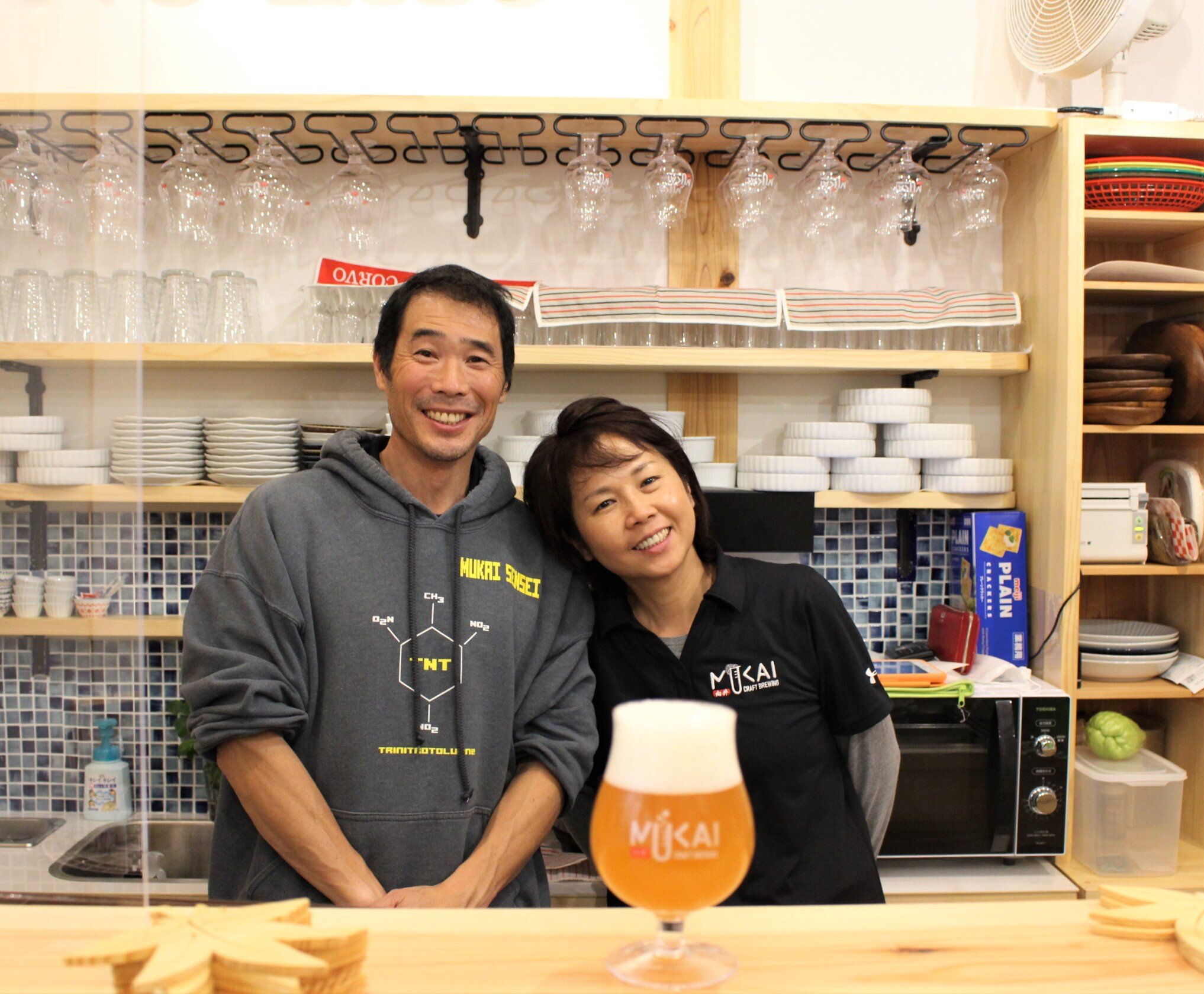Investing in Kochi Prefecture
How three expat families are making a difference in rural Japan
For most, investing brings to mind index funds, real estate investment trusts, or property. But what about investing in the growth of your local community via beer, tourism, or fitness? In Kochi, on the island of Shikoku, three families are looking beyond plain profit as they seek to revitalize and secure the future of their communities in unexpected ways.
Fitness Fans
Violet and Carlo Pacileo decided to move to Otoyo to help Violet’s mother restore the family’s land. But the enterprising duo decided they could do more.
“Aging populations, businesses dying out, houses being abandoned … these are issues all of Japan’s rural communities are facing. But seeing the impact firsthand in Otoyo was heartbreaking,” Violet explained.
Having spent her career analyzing businesses and investment potential, Violet quickly understood that the community needed an injection of private capital. “After years working for large financial institutions, this is my chance to give back to the community.”
The Pacileos recently received approval to start building a CrossFit box, in other words a barebones gym. While the idea is unconventional, they have done their research. “Shikoku doesn’t have a box yet and the weightlifting association in Kochi told us there are only two facilities where they can drop weights—and both are in public high schools,” Violet said. “I knew then that there would be a market, and that we had to get in while the fitness industry here is still in its infancy.” She expects their new business not only to bring fitness-loving visitors to Otoyo, but also to help improve health issues in the community.
Beer Brewers
Former California residents Kenneth and Masako Mukai moved to Niyodogawa-cho to start a brewery, which opened in November 2020. Although this may seem an odd thing to do in a village of 5,000 people, the Blue Brew Taproom is already a hit.
Kenneth explained that the brewery is having multiple positive effects on the local economy. “Our local post office gets more business from us shipping our products, and the local government receives tax funds from people buying our beer through the furusato nozei program. Sales at restaurants and hotels around us have gotten a boost, as our customers often stay nearby.”
The Mukais buy locally produced items such as tea, ginger, and Satsuma-imo (sweet potatoes), which they use as flavoring, and collaborate with six farmers to grow hops, creating a new market in the community.
They have many supporters among the owners of established businesses in the area, and their positive example has also brought about changes in the village government’s perception of investment from outside. “The chiiki-okoshi kyoryoku-tai program used to be closed to non-Japanese applicants, but, in April, the first American member was accepted and moved here with his family!” Kenneth said.
Hospitality Queen and Organic Farmer
Australian Rosie Moloney and her husband, Tsuyoshi, live in the 1,481-person village of Mihara. They know well the importance of leading by example and engaging with the community.
“When I first presented my plan to start a guesthouse, many locals asked, ‘Who would want to come here?!’” Rosie explained. “People can’t see the value of what they have, and it can take someone from outside to open their eyes and show them the opportunities outside the infamous box.”
Clearly, her guests agree. Rosie now runs two highly rated guesthouses in the Shimanto area, while also engaging in permaculture and helping with Tsuyoshi’s organic rice fields.
“I see such beauty, value, and potential here,” she said. “I started guesthouses to encourage the tourism industry and create new job opportunities.”
Many of Rosie’s guests—Japanese and those from abroad—stay for several days and contribute to the village economy through visits to restaurants and shops, as well as by booking outdoor activities. According to her, “Guests often say that the fondest memories of their trip are [those of] interacting with locals.”
Presented in partnership with Jarman International K.K.
Full audio version of this issue.
THE JOURNAL
Vol. 58 Issue 6
A flagship publication of The American Chamber of Commerce in Japan (ACCJ), The ACCJ Journal is a business magazine with a 58-year history.
Christopher Bryan Jones, Publisher & Editor






